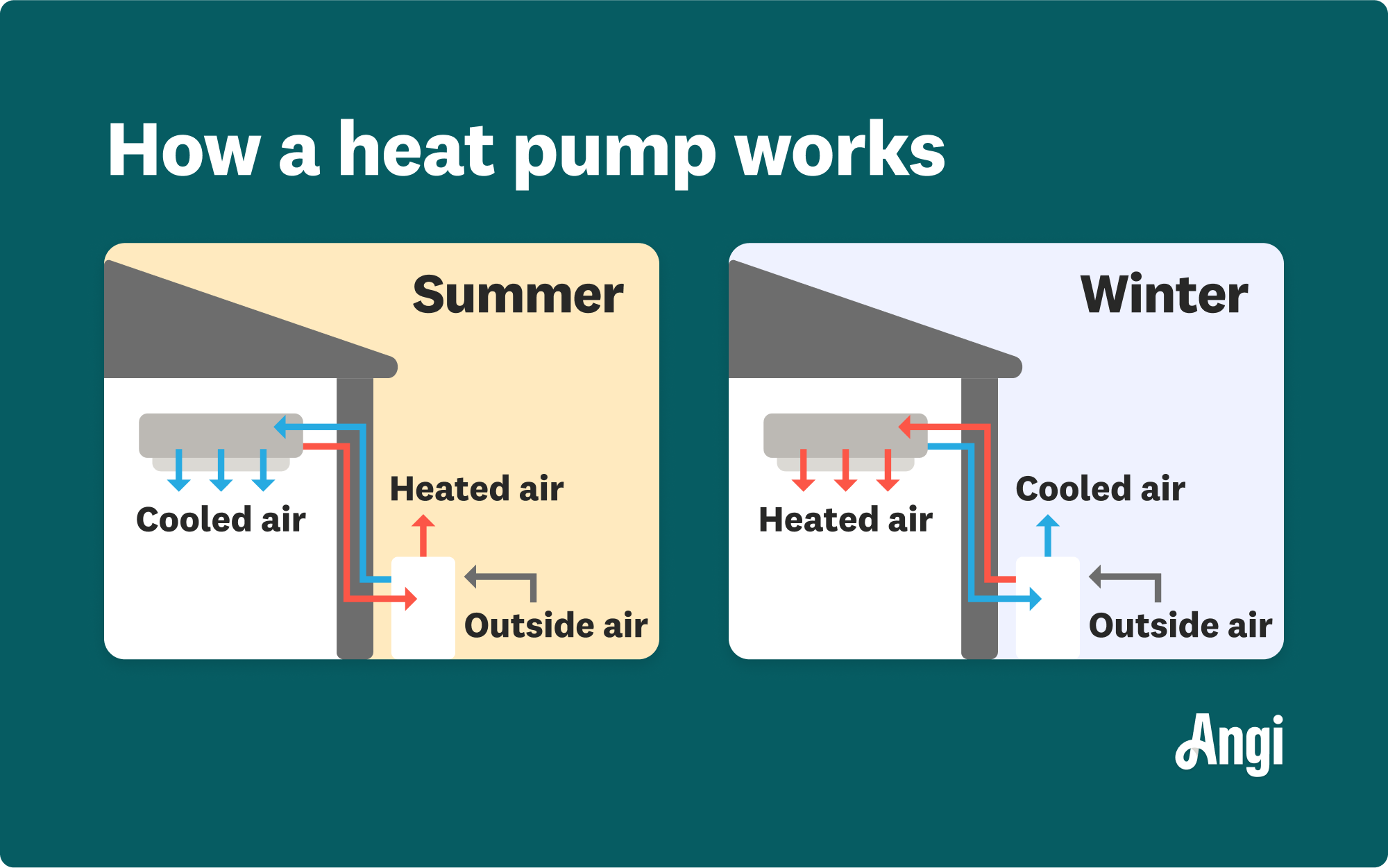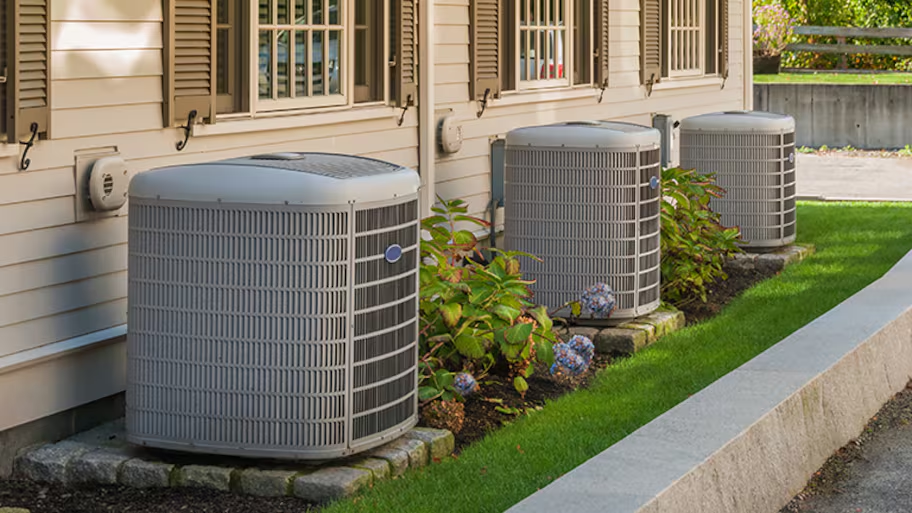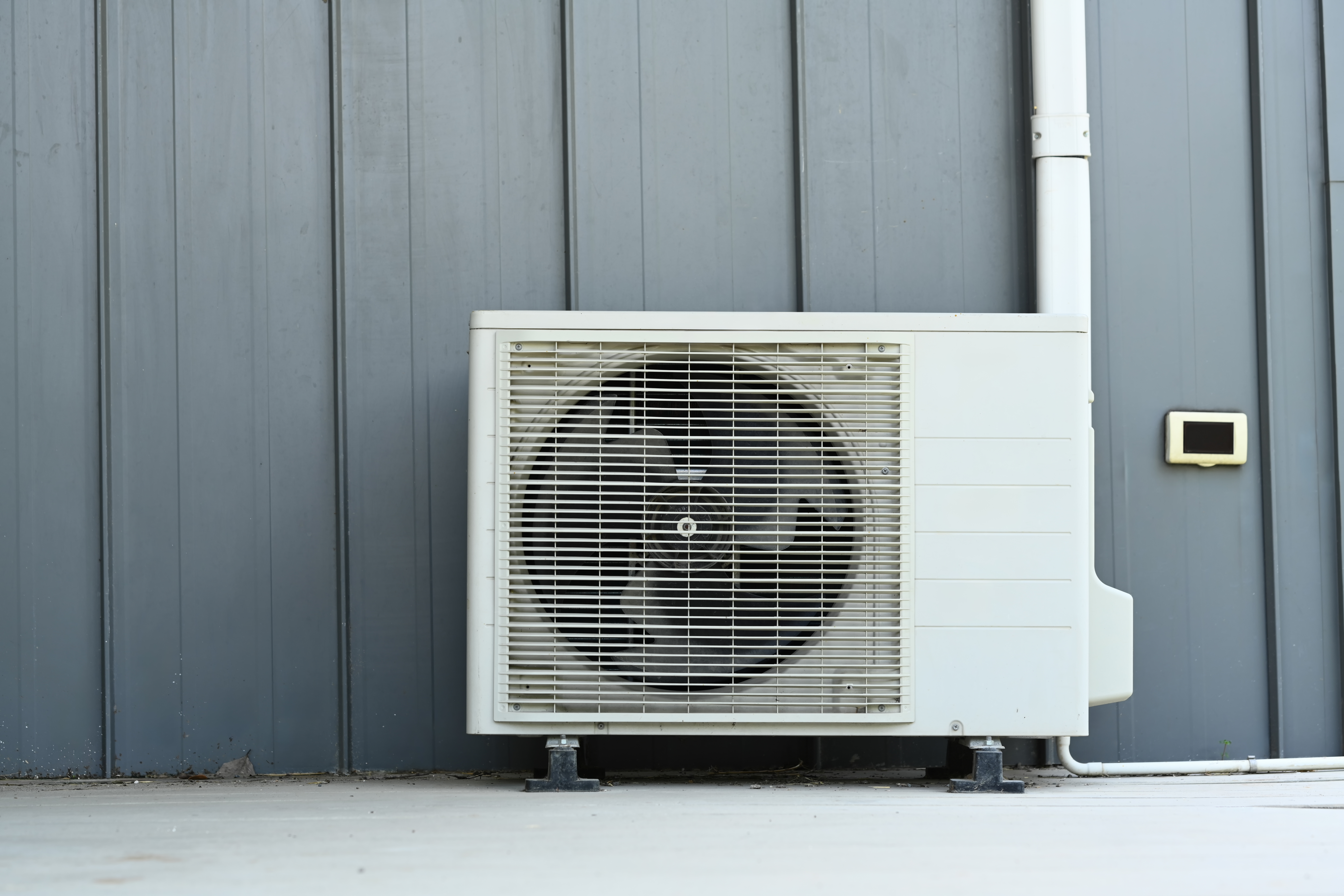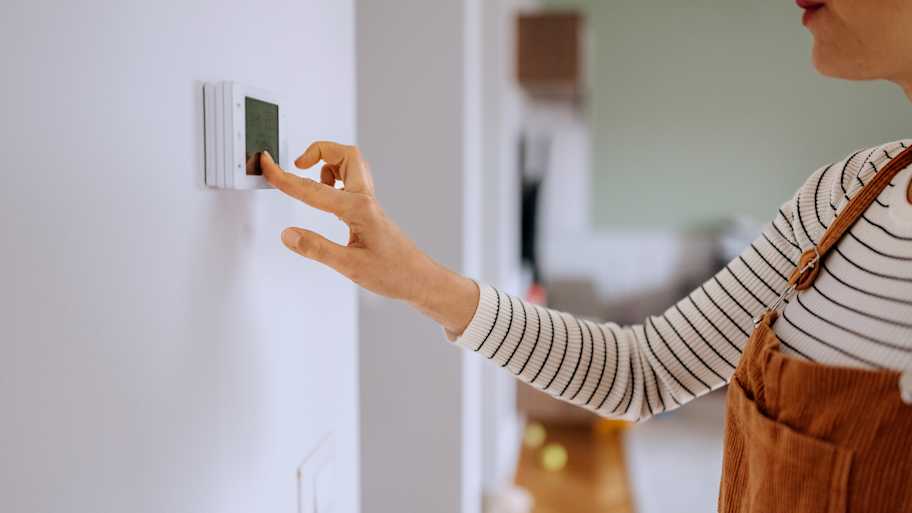
Whole-house humidifier costs vary based on the type and size of the unit, along with other factors. The price might be worth it for people living in dry regions.
Philadelphians pay an average of $6,266 for heat pump installation, with most project totals ranging from $4,475 to $8,291. For a custom quote based on your heat pump’s type and size, contact an HVAC pro.


Heat pump costs in Philadelphia, Pennsylvania, depend on the heat pump’s type and size.
Air-source heat pumps are more affordable (and more popular) than ground-source heat pumps.
Only licensed contractors can install heat pumps in Philadelphia, so you should leave room in your budget for their fees.
With a rebate from PECO, you can reduce your heat pump installation and maintenance costs.
Heat pump costs in Philadelphia, Pennsylvania, run between $4,475 and $8,291, for an average of $6,266. Your total price will depend on the type and size of your heat pump, as well as how much your contractor charges for labor. Here’s how those costs (and others) impact your heat pump installation costs in Philadelphia.
While heat pump installation costs in Philadelphia often fall within a certain range, your price will largely depend on the type, size, and efficiency rating of your heat pump (among several other factors).
Heat pumps both heat and cool your home and can be ducted or ductless. They work similarly to air conditioners, but heat pumps can reverse the cooling process and also warm your home.
Air-source and ground-source heat pumps are the most common types of heat pumps for homes. Air-source heat pumps (such as ducted and ductless mini-splits) use air from outside your home to heat and cool the air inside it, while ground-source heat pumps (or geothermal heat pumps) use a system of underground pipes. Of the two, air-source heat pumps are less expensive.
| Heat Pump Type | Average Unit Cost |
|---|---|
| Ductless mini-split | $700–$6,000 |
| Air source | $1,500–$4,500 |
| Ground source | $2,400–$8,000 |
A heat pump’s size refers to its heating and cooling capacity (not its physical dimensions). When shopping for heat pumps, you’ll notice that sizes are given in tons, British Thermal Units (BTUs), or both. Larger-sized heat pumps—which offer more heating and cooling capacity—are pricier than smaller units.
Here’s how much you can expect to pay for a heat pump based on its size:
| Heat Pump Size (in Tons) | Heat Pump Size (in BTUs) | Average Unit Cost |
|---|---|---|
| 2 | 24,000 | $1,200–$3,000 |
| 3 | 36,000 | $2,200–$5,800 |
| 4 | 48,000 | $3,000–$7,000 |
You might think that buying the biggest possible heat pump is the best way to get through Philadelphia’s chilly winters and hot, humid summers. However, heat pump sizing is based on much more than just climate. Your HVAC contractor will also consider your home’s square footage, energy loss areas (like windows and doors), and other factors.
With heat pumps, cooling efficiency is measured by Seasonal Energy Efficiency Ratio (SEER), and heating efficiency is measured by Heating Seasonal Performance Factor (HSPF). These rating systems describe how efficiently a heat pump uses energy to heat or cool your home.
The most efficient heat pumps have the highest SEER and HSPF ratings. However, as you can see below, the highest-efficiency units are also the most expensive:
| Heat Pump SEER Rating | Average Unit Cost |
|---|---|
| 15 | $1,800–$5,900 |
| 16 | $2,400–$6,200 |
| 18 | $2,900–$6,700 |
| 20 | $3,600–$9,500 |
To enjoy the cool or warm air produced by your heat pump, you’ll need ductwork throughout your house. (One exception: As the name would suggest, ductless heat pumps don’t require ductwork.)
If you’re replacing an existing ducted heat pump, you should already have a duct system. However, if the ducts are old or in poor shape, you’ll have to replace them when you add a new heat pump. In a typical Philadelphia home, replacing ductwork costs $411 to $1,631.
Installing new ductwork, however, is much more expensive. On average, it costs between $3,000 and $7,500 per 300 linear feet.
In addition to the heat pump and ductwork, there are a few other expenses to factor into your project budget, including professional installation and permits.
You’ll need a licensed and insured contractor to install a heat pump in Philadelphia. While the city doesn’t issue specific heating and cooling licenses, your installer may need a contractor license from the Department of Licenses and Inspections (L&I), depending on the type of work their company performs.
Additionally, if you plan on replacing or installing any sheet metal ductwork, your pro must have a sheet metal license.
To follow Environmental Protection Agency (EPA) regulations, your HVAC pro in Philadelphia, Pennsylvania, should also have an EPA certification to work with refrigerants.
In Philadelphia, heat pump and ductwork installation require a mechanical permit. Your total permit costs will depend on the extent of your project (for example, if you’re simply replacing a heat pump versus installing a brand-new HVAC system, including ductwork). In most cases, though, these permits cost several hundred dollars.
If you buy an Energy Star-certified heat pump in Philadelphia, you could get a rebate from PECO. Here’s how much you might get back, depending on the type of heat pump and its SEER rating:
| Heat Pump Type | Rebate for 16.1–18.3 SEER (15.2–17.0 SEER2) | Rebate for 18.4+ SEER (17.1+ SEER2) |
|---|---|---|
| Air-source heat pump | $200 | $300 |
| Ductless mini-split heat pump | $150 | $300 |

With warm, humid summers and cold, snowy winters, Philadelphia is a great place to have a heat pump, which delivers both heating and cooling. However, you’ll likely need to install a cold-climate heat pump, which works better in freezing temperatures than traditional models.
If you plan on moving soon, a new heat pump can also be an enticing feature for potential buyers. Not only will they appreciate having a fully functioning heating and cooling system, but many Philadelphia buyers will also enjoy the environmental and cost benefits of an electric-powered heater and cooler. For those reasons, installing a new HVAC system can boost your property’s value by 5% to 7%.
Home is the most important place on earth, which is why Angi has helped more than 150 million homeowners transform their houses into homes they adore. To help homeowners with their next project, Angi provides readers with the most accurate cost data and upholds strict editorial standards. We survey real Angi customers about their project costs to develop the pricing data you see, so you can make the best decisions for you and your home. We pair this data with research from reputable sources, including the U.S. Bureau of Labor Statistics, academic journals, market studies, and interviews with industry experts—all to ensure our prices reflect real-world projects.
Want to help us improve our cost data? Send us a recent project quote to [email protected]. Quotes and personal information will not be shared publicly.
From average costs to expert advice, get all the answers you need to get your job done.

Whole-house humidifier costs vary based on the type and size of the unit, along with other factors. The price might be worth it for people living in dry regions.

Gas furnace replacement costs depend on the type of furnace you want and installation fees. Our guide explains all the factors involved in a new furnace cost.

HVAC replacement costs depend on a lot of factors, like unit type, size, and labor. See what you can expect to pay for HVAC replacement here.

Keep your AC running smoothly with this mini-split maintenance checklist.

Wondering if you should buy an air purifier? Discover important air purifier pros and cons for your home, health, and budget.

If you use a heat pump for warming your home, you’ll want to understand when to use the different modes for emergency heat vs. heat.